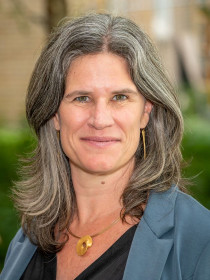Connect with Kelly
About Kelly
Musick studies family change with a focus on how it relates to social inequality and the well-being of family members. Current projects address questions about couples' work and earnings following first birth and the gendered nature of parenting both in the U.S. and cross-nationally.
Contributions
Does It Matter for Children If Their Parents are Married?
In the News
Publications
Shows that prior to the pandemic, shifting to remote work increased gender gaps in housework but decreased gaps in childcare. Remote work worsened mothers' work environments relative to fathers' as mothers more frequently report combining paid work and childcare.
Argues that although parents tend to enjoy time with their children, mothers report less happiness, more stress, and greater fatigue in time with children than fathers, due largely to their disproportionate share of basic and solo caregiving, as well as their lower quality sleep and leisure.
